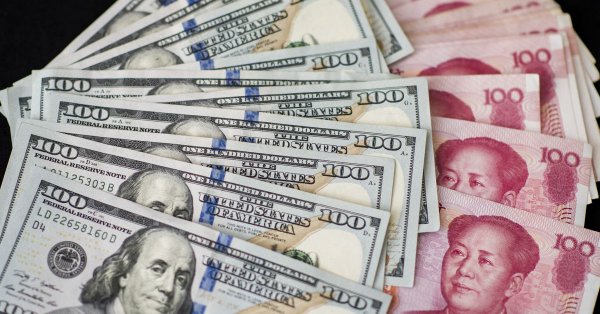Yen gains on Monday as China cancels trade talks with US

- Country:
- China
- United States
The safe haven yen gained on Monday in holiday-thinned trading as China cancelled upcoming tariff talks with the United States, ratcheting up tensions while oil prices jumped after top producers including Russia ruled out boosting crude output.
Most of the action was in currencies as financial markets in Japan, China and South Korea were closed for a holiday.
Investors were squarely focused on the Sino-U.S. trade war as China added $60 billion of U.S. products to its import tariff list, retaliating against duties on $200 billion of Chinese imports that come into effect on Monday.
China also cancelled mid-level trade talks with the United States, as well as a proposed visit to Washington by vice premier Liu He originally scheduled for this week, the Wall Street Journal reported.
The United States, meanwhile, does not have a date for further talks.
The intensifying dispute between the world's two biggest economies has spooked financial markets.
The Japanese yen, which sees fund inflows during times of crisis, ticked up to 112.5 per dollar while the trade-sensitive Australian dollar slipped from a 3-1/2 week top to $0.7274.
"The trouble is that further escalation is still on the cards as both sides are still well apart on the key issues," said AMP Chief Economist Shane Oliver.
"Trump remains defiant saying 'it's time to take a stand on China' and his threat to increase tariffs on all imports from China remains," Oliver added.
He remained optimistic about Chinese growth as authorities in Beijing devise policy stimulus to offset the economic impact of the tariffs.
Chinese Premier Li Keqiang said over the weekend China will cut import and export costs for foreign firms as it looks to promote an image of being open for business.
"Our view remains that a negotiated solution is likely but its unlikely to come until later this year or early next," Oliver added.
On Friday, Wall Street closed mixed with the Dow adding 0.32 percent, he S&P 500 mostly unchanged and the Nasdaq easing 0.51 percent.
BREXIT AND FED
Britain's exit from the European Union will be another key issue for investors, with risks of a 'no deal' or 'hard Brexit' shooting up again.
On Friday, British Prime Minister Theresa May said talks with European Union had hit an impasse after the bloc's leaders rejected her "Chequers" plan without fully explaining why.
The pound fell as much as 1.4 percent on Friday, its biggest one-day percentage loss since June 2017. It was last at $1.3076 from Friday's $1.3053, the lowest since mid-September.
The euro eased from a three-month peak on Monday to last trade at $1.1747.
The dollar's index, which measures the greenback against a basket of major currencies, was last at 94.22 to hover near its weakest point since early July.
The dollar was hammered late last week as investors ramped up bets that the U.S. Federal Reserve will be near the end of its rate-rising cycle after an expected increase this week.
The Fed will end its two-day policy meeting on Wednesday.
Oil prices gained as OPEC's leader Saudi Arabia and its biggest oil-producer ally outside the group Russia effectively rebuffed U.S. President Donald Trump's calls for action to lower prices.
Brent crude futures last ended 94 cents higher at $79.74 a barrel, while U.S. crude futures rose 70 cents to $71.48.
ALSO READ
Yellen launches contentious meetings on Chinese excess production threat
Yellen launches contentious meetings on Chinese excess production threat
Yellen launches contentious meetings on Chinese excess production threat
Pakistan President Zardari assures security for Chinese nationals
US, EU eye Chinese legacy chips in renewed semiconductor accord










